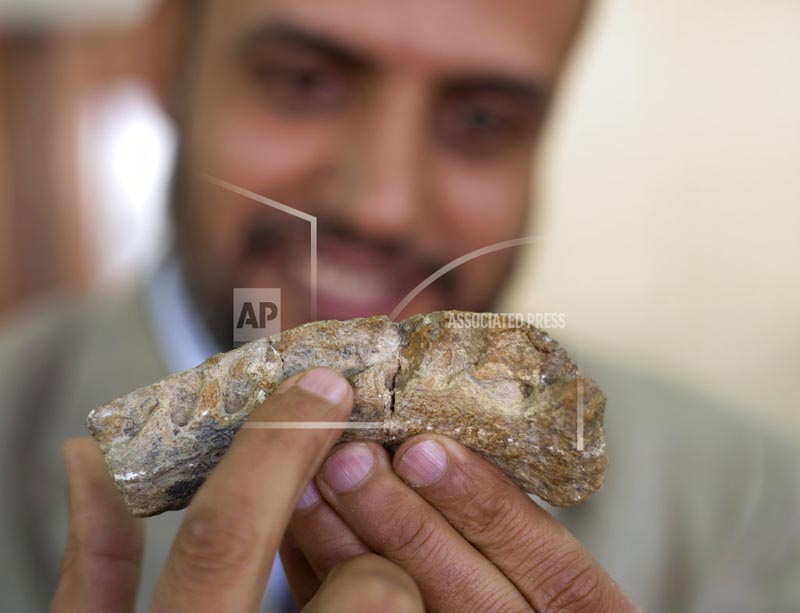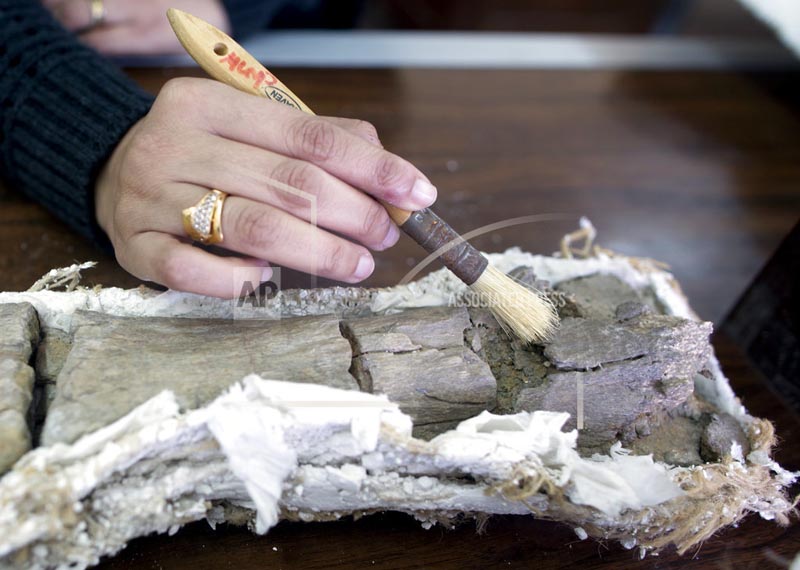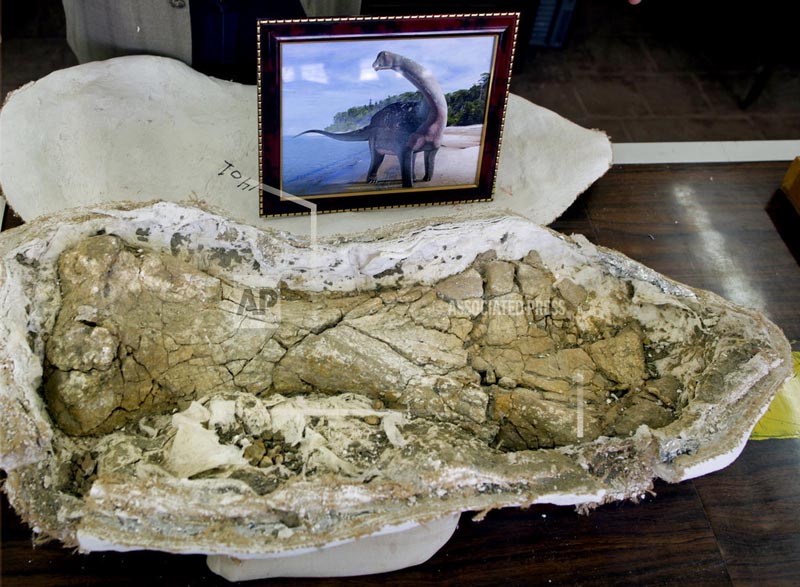Rare dinosaur discovery in Egypt could signal more finds
MANSOURA, EGYPT: A skeleton has been unearthed in Egypt's Western Desert, whose ancient sands have long helped preserve remains, but unlike most finds this one isn't a mummy — it's a dinosaur.
Researchers from Mansoura University in the country's Nile Delta discovered the new species of long-necked herbivore, which is around the size of a city bus, and it could be just the tip of the sand dune for other desert dinosaur discoveries.
"As in any ecosystem, if we went to the jungle we'll find a lion and a giraffe. So we found the giraffe, where's the lion?" said Hesham Sallam, leader of the excavation team and head of the university's Center for Vertebrate Paleontology.
Sallam, along with four Egyptian and five American researchers, authored an article in the magazine "Nature: ecology and evolution" published Jan. 29 announcing the discovery.
Experts say the find is a landmark one that could shed light on a particularly obscure period of history for the African continent, roughly the 30 million years before dinosaurs went extinct, between 70 and 80 million years ago.


Sallam said he and a group of doctoral and master's degree students were heading to give a lecture at a local university when they stumbled on a desert road with the appropriate geological outcroppings that they hadn't noticed before. The next morning, the team returned to survey it, covering an area of several kilometers. It wasn't long after they started that one of the students called him on the phone, saying that he should come see the number of bones she'd found.
Sallam said he knew from the first small piece of fossil he was shown that it was a big deal.
"When I first saw it I told them, if this comes out as I expect, your names will go down in history," he told his students.
There is now some hope the discovery could bring more funding for the paleontology field in Egypt and financing for ongoing studies, Sallam said. But he said he's most proud of making science real for people who otherwise aren't exposed to it as much.
"I mean, we've made the average Egyptian man, or the Arab man, talk about dinosaurs," he said.






